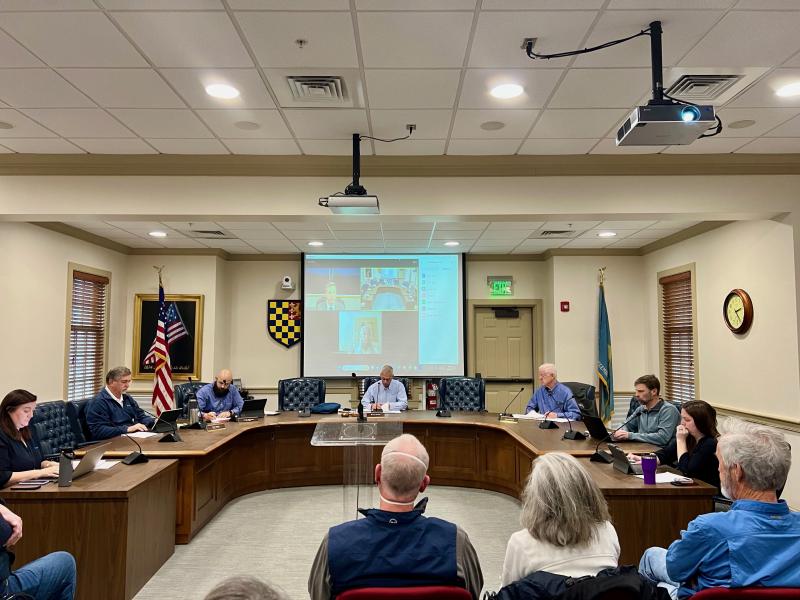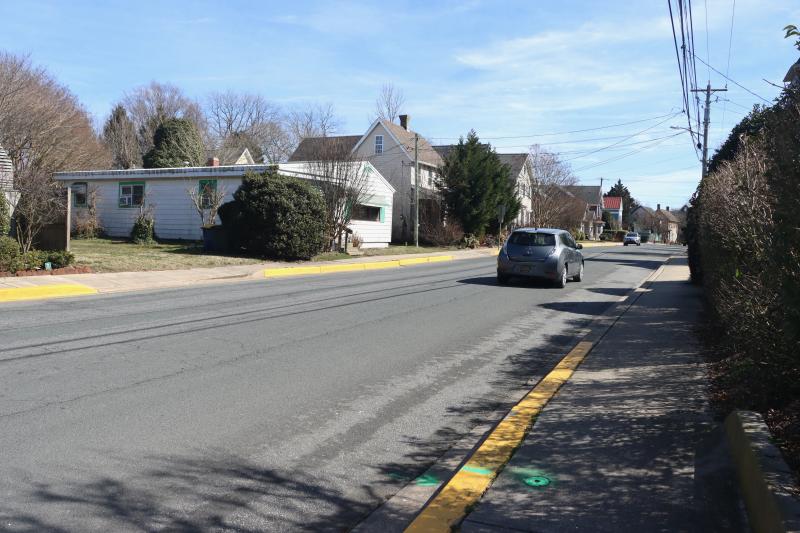Bill Schmidt says he has been dealing with dirty water on Park Avenue for years.
“I live in front of a fire hydrant. They opened it and drained it, and it was nothing but rust,” he said.
Schmidt and his neighbor, Joe Elder, were among the residents who packed city council chambers at the Feb. 28 Lewes Board of Public Works meeting to talk about water, in various forms.
BPW General Manager Austin Calaman said it is not unusual to have a coffee-like component come out when the system is flushed.
But, Schmidt and Elder said it is a sign that BPW and the city should speed up the timeline for replacing the decades-old pipes under their streets.
Right now, BPW’s five-year capital budget does not have money for Park Avenue pipes until 2028; although Calaman said that could be moved up.
But, BPW Board President Tom Panetta said help is on the way before that. He said replacing the main under Fourth Street is high on the priority list and will have immediate benefits.
“By doing Fourth, it will help the side properties until we can get going on Park,” he said. “You will be getting clean water from the main, where a lot of that now is sediment.”
Replacing the pipes and rebuilding Fourth Street from Savannah Road to Burton Avenue comes with a hefty price tag. At the March 1 mayor and city council budget workshop, city engineer Charlie O’Donnell said the city’s portion of the joint project would be just over $2 million. BPW’s portion would be just over $3.5 million.
O’Donnell’s proposed budget calls for the project to be funded between fiscal years 2025 and ‘27.
BPW would replace the main under the street, while the city would repave the roadbed, and rebuild the sidewalks and curbs.
Wastewater plant
Another group of residents attended the meeting to tell BPW they do not want a new wastewater treatment plant near their homes.
“You have established neighborhoods that don’t have a sewage treatment plant in their backyard, and suddenly, they’re going to have one,” said Bob Rabatsky, who organized his neighbors to show up.
A new facility is one of three options on the table as BPW looks to address sea-level rise and flood damage at the existing wastewater plant on American Legion Road.
A BPW committee identified four possible locations for a new plant: the current site, a site adjacent to Freeman Highway, land on Schley Avenue, and a 3-acre vacant parcel bordering the Lewes-Rehoboth Canal, trail and Freeman Highway.
Another option is to harden the current facility.
The third option is to work with Sussex County on an outfall from the county’s Wolfe Neck facility, because it would be the most cost-effective.
“We are still working on option three,” Panetta said. “We are talking with the county. They’ve been very cooperative, but we have not put pen to paper on an agreement.”
The BPW committee report estimated option one would cost $18 million; $35 million to $40 million for option two.
Panetta said there is no way to estimate the cost of option three until details are worked out.
He said the archeological dig at the Wolfe Neck site has disrupted plans. DNREC has not released the findings of the original survey or results from a planned phase two study.
Panetta said BPW will hold a public workshop on the wastewater treatment plant in March or April.
Hoornkill annexation
A group of people who live on Hoornkill Avenue also came to the Feb. 28 meeting to support the annexation of 11 homes on their street that are currently outside city boundaries.
Those property owners would be eligible to connect to city water and sewer, if they are annexed.
Not all of the residents are in favor of annexation, though.
“I don’t mean to sound so frustrated, but we’ve had five years of this back-and-forth,” said Amy Dworkin, who lives in one of those 11 homes and supports annexation.
Calaman said connecting those 11 homes would cost about $750,000. He said replacing the pipes on the full length of Hoornkill would cost about $3 million.
It is unclear how much residents would have to pay to be connected to city water and sewer. But, they could be eligible for relief through a combination of state grants, low-interest loans or principal forgiveness.
Mayor Andrew Williams, who serves ex officio on BPW, said the city also might be able to offer tax abatements or money from the American Rescue Plan Act.
O’Donnell said if the board and the city decide to pursue the project, it would likely be the end of the year before the state would approve the full application.
At the March 1 budget workshop, O’Donnell said the city’s portion of the joint project would be about $368,000, while BPW’s would be about $1.6 million.


























































